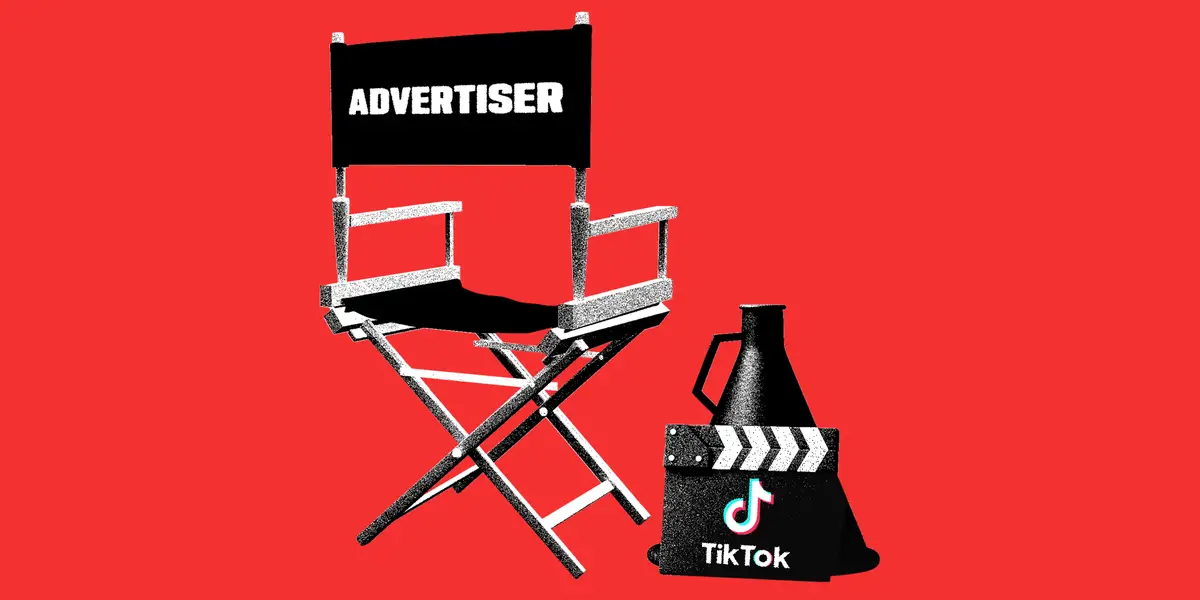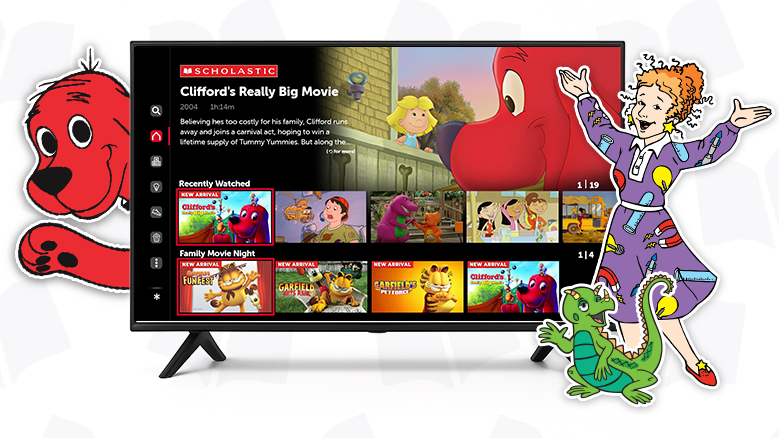
This summer, a new series on TikTok caught my eye. “Roomies” appeared to be a group of sketch comics turning out a once-weekly, highly-produced (by TikTok standards) mockumentary-style sitcom about a young woman named Ellie who moves from the Midwest to New York and encounters all the horrors the city has to offer: long lines for restaurants that have gone viral, bad roommates, and broken air conditioning. But when I peeped the show’s bio, I found that it’s not the work of a Gen Z iteration of the Upright Citizens Brigade or “SNL” hopefuls — it’s written, directed, and produced in-house by the rent loyalty rewards company Bilt.
In the first dozen or so two-minute-long episodes, there’s not one mention of Bilt. The show focuses on the issues central to Bilt’s existence — housing affordability and scarcity in New York — and the “Roomies” account has garnered nearly 90,000 followers and its videos have racked up some 8 million views without pushing a single Bilt product placement. Perhaps the most shocking thing about this barely-branded content: It’s actually funny and relatable.
“Roomies” isn’t the first brand to take a shot at the stealth sitcom. Jewelry brand Alexis Bittar began uploading short videos of its own mockumentary series “The Bittarverse” on social media platforms two years ago, in which “Pose” actress and stylist Patricia Black pokes fun at the fashion industry while sporting items from Bittar’s collection. (The series has won a Webby award.) InStyle magazine has run three seasons of its short-form series “The Intern” satirizing obnoxious young workers with no concept of workplace boundaries. This is the latest evolution of sponsored content, which has subtly been making its way to us since Procter & Gamble sponsored radio and TV shows a century ago, launching the soap opera. Some of the comedic groups I follow have taken to posting not hauls or out-right endorsements of brands, but writing and filming sketches in their own style around the brand (think: a group of chaotic girl friends in Brooklyn hastily getting ready for a wedding, explicitly sponsored by clothing rental brand Nuuly).
It’s a departure from buttoned up, traditional influencer marketing, where someone blatantly endorses or explains a product or shows the way it fits into a made-for-the-Gram lifestyle. Instead, the videos take a form that conveys a feeling, more subtle show than tell. In an online world where everything feels like an ad, the latest trend is making ads that feel like the organic social content people actually bother scrolling to see.
Ironically, advertisers are parroting authenticity as social media at large seems to lose it.
Our social internet is increasingly defined by rage clickbait and generative AI slop, with ads mixed between. Brands have raced to capitalize on social trends, like Taylor Swift album drops, Barbenheimer summer, or the latest memes on social media for the past decade, from Denny’s acting out of pocket on Twitter to brands jumping on Threads, ultimately turning it into their playground and killing the juice. Many of those attempts fall flat. “Relevance without storytelling is just random and scattered,” says Andrew Roth, founder and CEO of the Gen Z-focused research firm DCDX. In today’s brain-rot filled social world,this entertainment-forward content “feels so good and nice to see,” Roth says. “It’s like a relief.”
That relief comes because the content is more about laughs and storytelling than it is the intricacies of Bilt’s loyalty programs. “We’re trying to show all the things that Bilt enables you to do,” Zoe Oz, Bilt’s chief marketing officer, tells me. “There’s a bigger emotional element to this type of content that isn’t just, what is Bilt’s product? It is also, what does Bilt make me feel and what do I feel as a Bilt member?” Oz says measuring the success of “Roomies” is more about seeing how many people followed its account or engaged with it, and less, for now, about how many of those people became users of its product after watching the show. “We wanted to build content for content’s sake and really build visibility.” Advertisers want your eyeballs; if they can keep you there for a full two minutes by getting you to laugh, that’s a huge win, even if they don’t see a tagline at the end.
Advertisers are parroting authenticity as social media at large seems to lose it.
The short sitcom snippets also are just the right length to cater to our ever-shrinking attention span. These brands are solving a problem that has long plagued Hollywood: how to master short-form video for mobile. Quibi failed spectacularly at this, despite $1.75 billion in funding and promotion from some A-list actors. DramaBox has captured interest with short-form soap operas, and is now looking to take on other genres. There’s a clear appetite for storytelling on TikTok, and anonymous accounts regularly cut and post, without permission, scenes from TV and movies like serialized dramas like “Chicago Med” or classics like “Sex and the City.” TikTok and YouTube are the most popular video platforms for people ages 18 to 35, outpacing more traditional streaming services, according to research firm Omdia.
And for actors, making it big on the little screen might be the new way to break into the industry. Maddie Land, who plays Ellie in “Roomies,” comes from a theater background. Originally from Cincinnati herself, Land has a lot in common with the character, and tells me she felt authentic playing her — something that is hard to come by when making ads. “They are writing the most relatable content,” Land says. “So many different people I’ve seen in the comments are like, ‘oh my God, is this about me?'” Land also tells me she was looking for exposure and experience, and taking on Ellie “has absolutely been the best way to get that, because so many different people are seeing ‘Roomies.'”
Gen Z is more likely than other age groups to be influenced into buying a product by social media, according to McKinsey research. But what they want to see is changing. Young people preferred influencers who were “quirky, humorous, and vulnerable” than those showcasing products used in their picture perfect lives, according to a 2023 report from the consulting firm about the fashion industry.
These mockumentaries are “pushing the boundaries of what marketing has done in the past, in terms of the topics that they’re covering or the less polished version that they’re showcasing,” says Olivia McNaughten, vice president of marketing at Grin, an influence marketing software company. That doesn’t mean aspirational influencer content is going away, but for brands that don’t need to sell a picture perfect lifestyle, it can work. “Humor is just inherently stickier, people remember it,” says McNaughten, “When it’s done really well, it can cross over the skepticism that people have typically when they’re engaging with a brand.”
For the “Bittarverse,” founder Alexis Bittar tells me the satirical content is a way to make “the brand to resemble my values.” Bittar, who writes and directs the series, focuses on critiquing the elite class so often shown as aspirational in fashion advertising. He also hired two trans women to act in the short-form series, and takes risks with humor that pushes boundaries of political correctness — something bigger brands are unlikely to do. “Generally, brands want to sell to everybody,” Bittar tells me. “I’m not looking to get the tennis club customer.”
The thing about the “Bittarverse,” “The Intern,” and “Roomies,” is that they’re actually good. People might be more willing to be entertained by ads when they set the bar for humor high. These companies are cracking a way to entertain people and break through social feeds filled with obnoxious, addictive videos in favor of micro-versions of “The Office.” Brands eying the success stories are likely trying to think up their own series. Some might be good, many will probably fail to land on many FYPs. There’s an uncanny aspect of having ads stealthily served like this not as a side dish but with equal weight to the main content you want to see. And yet, I have to wonder if Ellie, our doe-eyed Midwestern protagonist, makes it as a city girl or gets driven back to the safety of her Ohio hometown, so I’ll keep watching.
Amanda Hoover is a senior correspondent at Business Insider covering the tech industry. She writes about the biggest tech companies and trends.



